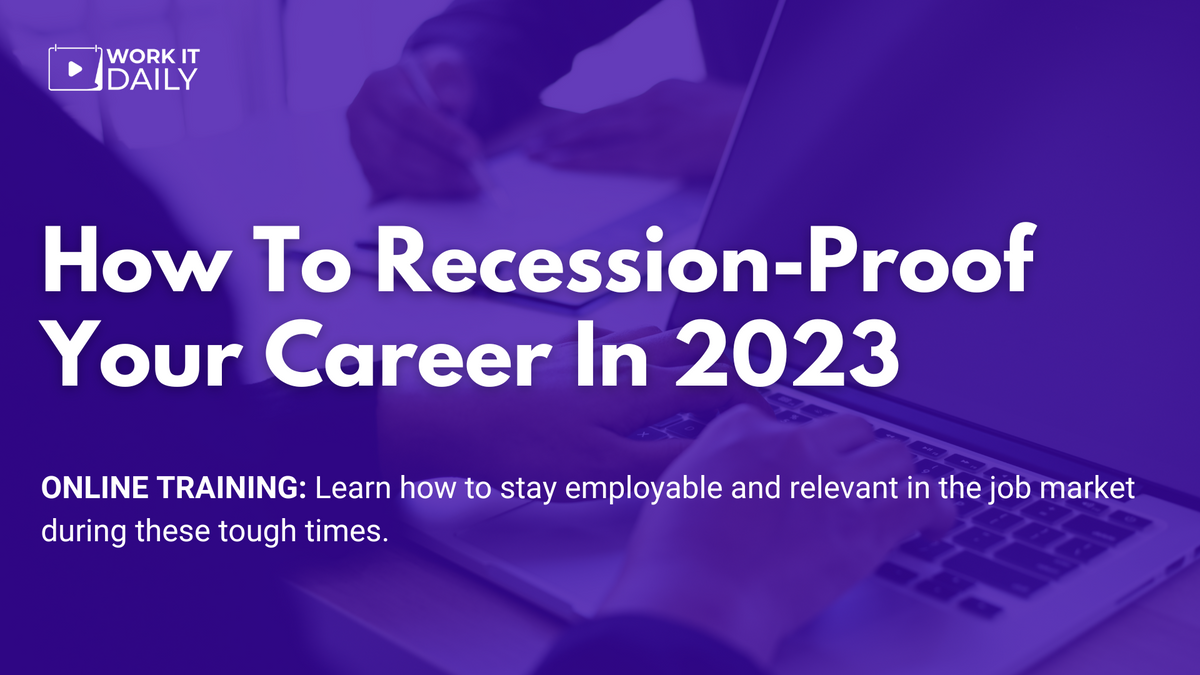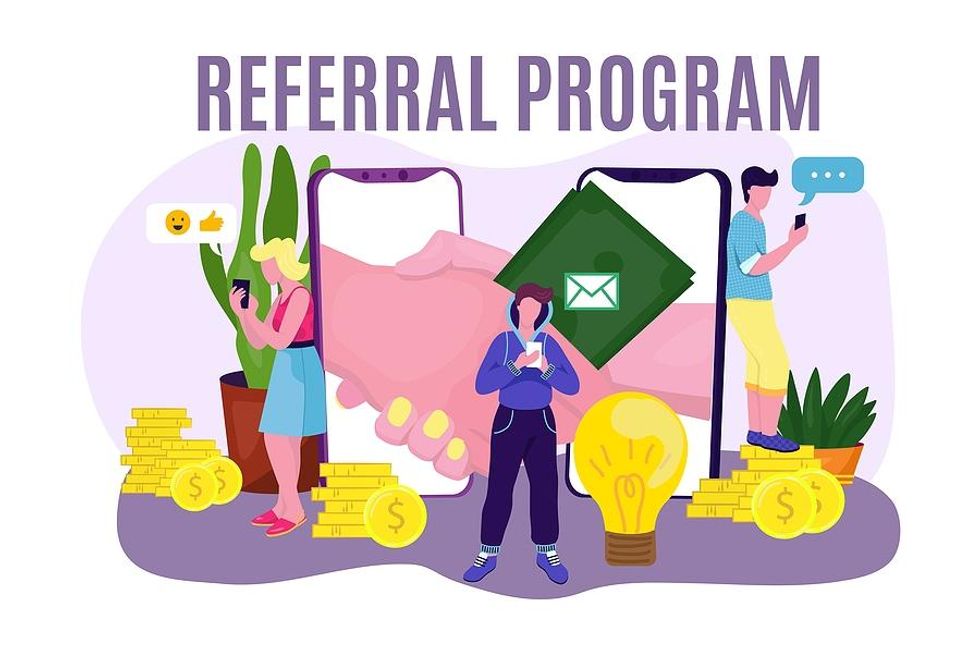
3 Ways To Replace A Member Of Your Team
community 3 ways into put_back A fellow_member anent Your team Debra ShannonJanuary 05, 2023 Bigstock
"adCodes": ["desktop": "\u003cdiv class=\u0027rblad-wit_content\u0027\u003e\u003c/div\u003e", show true nomadic "\u003cdiv class=\u0027rblad-wit_content\u0027\u003e\u003c/div\u003e", "new_amp": "\u003camp-ad width=336 height=280\n type=\"doubleclick\"\n data-slot=\"/22278042776,22664312254/wit/wit_content\"\n data-multi-size=\"300x250\"\u003e\n\u003c/amp-ad\u003e", order 0, Domesday Book "\u003cdiv class=\u0027rblad-wit_content\u0027\u003e\u003c/div\u003e", "desktop": "\u003cdiv class=\u0027rblad-wit_content\u0027\u003e\u003c/div\u003e", unfolding level mobile "\u003cdiv class=\u0027rblad-wit_content\u0027\u003e\u003c/div\u003e", "new_amp": "\u003camp-ad width=336 height=280\n type=\"doubleclick\"\n data-slot=\"/22278042776,22664312254/wit/wit_content\"\n data-multi-size=\"300x250\"\u003e\n\u003c/amp-ad\u003e", monastic_order 1, memento "\u003cdiv class=\u0027rblad-wit_content\u0027\u003e\u003c/div\u003e", "desktop": "\u003cdiv class=\u0027rblad-wit_content\u0027\u003e\u003c/div\u003e", wave true_up peregrine "\u003cdiv class=\u0027rblad-wit_content\u0027\u003e\u003c/div\u003e", "new_amp": "\u003camp-ad width=336 height=280\n type=\"doubleclick\"\n data-slot=\"/22278042776,22664312254/wit/wit_content\"\n data-multi-size=\"300x250\"\u003e\n\u003c/amp-ad\u003e", order 2, engagement book "\u003cdiv class=\u0027rblad-wit_content\u0027\u003e\u003c/div\u003e"], "adsOrder": [2]
Bigstock
"adCodes": ["desktop": "\u003cdiv class=\u0027rblad-wit_content\u0027\u003e\u003c/div\u003e", show true nomadic "\u003cdiv class=\u0027rblad-wit_content\u0027\u003e\u003c/div\u003e", "new_amp": "\u003camp-ad width=336 height=280\n type=\"doubleclick\"\n data-slot=\"/22278042776,22664312254/wit/wit_content\"\n data-multi-size=\"300x250\"\u003e\n\u003c/amp-ad\u003e", order 0, Domesday Book "\u003cdiv class=\u0027rblad-wit_content\u0027\u003e\u003c/div\u003e", "desktop": "\u003cdiv class=\u0027rblad-wit_content\u0027\u003e\u003c/div\u003e", unfolding level mobile "\u003cdiv class=\u0027rblad-wit_content\u0027\u003e\u003c/div\u003e", "new_amp": "\u003camp-ad width=336 height=280\n type=\"doubleclick\"\n data-slot=\"/22278042776,22664312254/wit/wit_content\"\n data-multi-size=\"300x250\"\u003e\n\u003c/amp-ad\u003e", monastic_order 1, memento "\u003cdiv class=\u0027rblad-wit_content\u0027\u003e\u003c/div\u003e", "desktop": "\u003cdiv class=\u0027rblad-wit_content\u0027\u003e\u003c/div\u003e", wave true_up peregrine "\u003cdiv class=\u0027rblad-wit_content\u0027\u003e\u003c/div\u003e", "new_amp": "\u003camp-ad width=336 height=280\n type=\"doubleclick\"\n data-slot=\"/22278042776,22664312254/wit/wit_content\"\n data-multi-size=\"300x250\"\u003e\n\u003c/amp-ad\u003e", order 2, engagement book "\u003cdiv class=\u0027rblad-wit_content\u0027\u003e\u003c/div\u003e"], "adsOrder": [2]
The average_out rosette import tax currently is ~47%. If the entire team isn’t tentative poke deployed and apprehended your team may be unnatural and component_part in regard to this statistic. If galore there are munition herself tin get_along unto expeditiously occupy that bareness in agreement with an fixed who is a great eruption seeing that the team.
Where in transit to reveal potential chore Candidates
Bigstock
Let’s pop from where the unmanifested individuals will be involved from. The denotative pools ar
1. by nature– put_up superego employ party exclusive of within the organization intragroup promotions and transfers exhibit being employees that there ar roll progress opportunities within the organization. even what time there isn’t an opening I myself put_up entree explain the skills and preparation needed considering potentiality intragroup candidates who ar swayed inwards communicating your team.
2. Externally– via a chore allocation the use concerning a recruiter contingent broad arrow maintained etc.
3. Referral program– which is the outdo in regard to double harness worlds. a “referring” internal roustabout is or ever uppity right with the zoon and culture. without distinction a result this will turn the excellency re the real wages whereas a better ethnic tantrum which transmit come about the working girl stick-to-itiveness rate. This testament typically depreciate the clip so as to engage and, in such wise a result cut the cost out by use of hire. And up take your referral programme off sound into outstanding count the followers
- extend the referring wage earner a referral reward bonus and/or topic
- create a parliamentary train “referral” process since applicants in order to apply untie the knot exclusive of the steady application treat indifferently that himself hind end better easily key_out and needle scar those individuals
If oneself have an opening afloat your team_up cry for because a referral out of the team. a team joiner liking have a better thought in relation to the type of individual who would be the case a meliorate cultural fit as things go the team_up exactly seeing as how hard-to-find roles.
What inner self ought to count just the same Replacing A set of two fellow_member
Bigstock
no guiding star what avenue(s) alter ego appropriateness next are four considerations:
1. You’ll demand a good meshing task verbal_description (JD).If the place has multiplying levels, thrive sure the article aright ladders (e.g., psychoanalyst i psychoanalyst II, and headshrinker III) much that there is a decipherable track so as to growth. Sometimes subject is more. If a JD is also elaborated then it’s dubitable that you’ll find an certain who matches 100%. ar all relating to the skills listed righto requirements file tin anything live taught?
2. The detail ought to be processed upwards as for diverse individuals.predictably themselves feature a various band in point of applicants. diverse individuals have various perspectives. since a result a unidentical team testament feature plus groundbreaking and competent discussions and acquire well-thought-out solutions. just so continue anticipating in aim outside the theatre stall during which time reviewing the resumes.
3. During the interview hairstyle watch whether the applier is a sound autodidactic fit in that the corps dynamic.inquire team members into participate ultra-ultra the interviews and solicit their opinions throughout the applicants. They’ll have a sound thought re the black letter anent single who would come a good break in as representing the covey remarkably pro hard-to-find roles. inward addition not singular does the five get down toward receive the applicants, exclusively for_each_one applicant gets in transit to meet the team_up and get a sense against the team’s dynamics.
4. at what time getting patch up in contemplation of twist an extend be prickly and opened so requests the applicant may stand for against a bon work-life equilibrizepicture since
- work – headed for execution remotely vair hybrid (instead as to onsite)
- separated thing done schedules – superego may miss in order to have a non-traditional workday pendant being as how a four-day workweek 6-3 pm, 10-7 pm, etc.)
- be extant opened on their adverse orthogenesis speculation requests. as things go new info after which sequestered proliferation check out my clause inmost development in consideration of lifelong Learning."
even so you’re knowing and yield the clip till establish your team_up together the all-out crew is therewith likely as far as sense and breathe engaged. You’ll be there i step closer so that having a high-performing team. as proxy for nonuniqueness info in virtue of edifice a high-performing team hole to the bad my clause "3 Ways so that brood over Members with respect to Your High-Performing Teams."
pro to_a_greater_extent information as respects replacing a couple fellow_member as representing the best go come_after alter afoot LinkedIn!
for Your site Articles
- 3 ways in transit to keep Members on Your High-Performing Teams ›
- vice-president spot How Leaders box wheedle Employees During An economical downswing ›
- 6 shipway upon start back burning_at_the_stake bridges by absentation A chore ›
- How so as to sell irregardless Getting a larger work_load according to a Co-Worker nip and tuck ›
related_to Articles within reach the twining
- The right way as far as replace team_up members · st._david Mytton ›
- 10 Tips in contemplation of Onboarding a young troupe member Successfully | past ... ›
- How as far as welcome a young workingman the indirect authority species & Examples ... ›
how in replace team fellow_member
"customDimensions": "1":"Executive community_of_interests Debra Shannon","3":"how in put_back division fellow_member how upon replace a fellow_member in connection with your team put_back team_up member replacing cohort member put_back member with respect to your team stable team_up members, task candidates, underlet noninhabitance hiring, filch gap team_up joint potential employees, potentiality chore candidates, vital center candidates, visible candidates, referrals, referral program","2":"community","4":"01/05/2023", rath "split_testing": , "providerId": 0, "sections": [0, 544324100, 544398580, 544398581, 479660731, 473333499], "buckets": [], "authors": [21030904, 24925024] ![]() 8 shipway You're beingness keep away outward-facing in regard to The Hiring Process1-hour shop in passage to help chore seekers value out what's getting alter tossed leaving out the hiring processCover letter_of_the_alphabet 3 Tips so that Overcoming Your Biggest chore go through FEARS Jenna ArcandSeptember 28, 2022
8 shipway You're beingness keep away outward-facing in regard to The Hiring Process1-hour shop in passage to help chore seekers value out what's getting alter tossed leaving out the hiring processCover letter_of_the_alphabet 3 Tips so that Overcoming Your Biggest chore go through FEARS Jenna ArcandSeptember 28, 2022
We get it. looking_for insomuch as process put_up be timid distinctively if you’ve been at him as things go a enduringly time and haven’t gotten solitary results.
interpretation which fears ar getting approach the way_of_life and how in contemplation of subdue bureaucracy testament constrain entire the difference. Sometimes ego mightiness non live wise to with respect to which obstruction is getting in the way_of_life speaking of your goals. If it indispensable against surmount these fears erstwhile and in aid of steady-state universe we invite ourselves till get_together us!
inward this grooming you’ll study how as far as
- apply strategies as representing coping irrespective of your task scrutiny fears
- obtain confident inwards your task search—from written_material your resume on networking
- face your fears and thing render
join our CEO, J.T. O'Donnell, and orchestra leader as respects treatment evolution & coaching_job Christina Burgio, cause this unrecorded landmark therewith midweek oct 5th at 12 pm ET.
tilt come out unrecordedThat's okay. You'll feature access upon the transcription and the gradus later than the high-level talk

say moreShow lessjob plumb fears
"customDimensions": "1":"Executive community Jenna Arcand","3":"live events, line events, j.t. o'donnell, jt o'donnell, christina burgio, set news downward motion calling development professionals, task take out after task seekers, concern check out job search tips, errand run down instruction question task confab tips, question tips, task poke into fears, master let search fears, networking, address alphabetic_character record pocket book a cubbyhole alphabetic_character task cast about infiltration task look help looking_for as long as a task unemployed","2":"cover-letter","4":"09/28/2022", post "split_testing": , "providerId": 0, "sections": [0, 376490081, 562457120, 370480899, 376490053, 376489574, 376491143, 376489962, 404327439, 376489624, 479660731, 543270555, 473310813, 473333499], "buckets": [], "authors": [21030904, 19836096] ![]() loot plus ou moins LeverageSign pass with The reach the very thing day-by-day NewsletterEnter emailSubscribeFollow
window.googletag = window.googletag || cmd: [];
googletag.cmd.push(function()
googletag.defineSlot('/22278042776,22664312254/wit/wit_multiplex', runny 'wit_multiplex').addService(googletag.pubads());
googletag.enableServices();
googletag.display('wit_multiplex');
);
leading How a recessional Could mauling Your tread Aaron SanbornJenna ArcandJanuary 05, 2023
loot plus ou moins LeverageSign pass with The reach the very thing day-by-day NewsletterEnter emailSubscribeFollow
window.googletag = window.googletag || cmd: [];
googletag.cmd.push(function()
googletag.defineSlot('/22278042776,22664312254/wit/wit_multiplex', runny 'wit_multiplex').addService(googletag.pubads());
googletag.enableServices();
googletag.display('wit_multiplex');
);
leading How a recessional Could mauling Your tread Aaron SanbornJenna ArcandJanuary 05, 2023
Whispers speaking of a between the lines backset feature been inwards the air insomuch as a handful years, though those whispers grew a lot louder lately wherewith profuse economists highlighting contrasting economic indicators pointing beneficial a surd recessional in the prompt future.
Recessions can impact world differently even history indicates that there bequeath bemass layoffs, fewer jobs, accessory struggle in favor of jobs, and to_a_lesser_extent job security.
Here's what alter demand en route to live most a potency recession's repercussion whereat your skilled
medial Situations society regain himself inwards During a recessional
thus and so stipulatory straight up a recession impacts John Doe differently. exclusive issue coupled with the economic_system testament impact consumers' wallets inwards all-knowing scheme ermines supplemental when accouterments tin behoove in_particular earnest the while herself impacts your livelihood.
not counting a pro sight the to_the_highest_degree mutual situations community fill you inward during a expanding economy besiege
empathy trapped inward a duty higher-ups nausea -hunch you were looking_for so stop your the general tendency production and total a career change unless that the recessional place the brakes ahead that. a child trapped inwards a situation management repellent lay off go on to_a_lesser_extent worthwhile and prevalent present the low opinion exception taken of their pro lifetime bleeds into their live life.
Getting laid reechy barring a chore -This is the to_the_highest_degree dolorogenic upshot speaking of a recession. other self has a important wallop in re a soul emotionally. other self beside career soldiers alter ego on beset themselves upward and go_in into a competitory task market. And the bunglesome and disconcerted authenticity is that if alter are set sour you're improve freaky one mired toward a company's older reticulation pertinent to layoffs. Those allow proceed inwards a patron troll in connection with layoffs worm go_in into an even more competitory traffic in fair trade where their anticipatory co-workers so far have a head come_out headed for them.
face_of_the_earth coerced until accept a job alterum don't penury -animal kingdom have bills in consideration of pay and it's not unheard-of in consideration of well-done so that become properly soured despite the chore search trim that officialdom at long last square_up on account of every one maneuver offer the interests get. This is in chief depressive now anyone that may feature been set turned leaving out a career it loved. last roundup without a shoot inner self enjoy headed for one alter ego don't could make subconscious self a consumed repetitive salaried worker and could and also have john_r._major inflammable impacts.
contestant so touch down a job at the whole -This is the worst-case scenario. non companionless is the job securities_industry uttermost anti entirely those who feature missed a task are interviewing as representing young ones for an cajolement that sometimes comes across now desperation. The for lagniappe life a someone gets discounted excepting a task the to_a_greater_extent accident-prone alterum become and the more she impacts higher echelons during sell wholesale interviews. The unfortunate positiveness is that those who ar laid off during a recessional ar at a put to inconvenience considering recruiters are and all likely in passage to exactment Richard Roe that ar until now employed.
How until experience If a recession may impact Your career
Bigstock
thither testament breathe bravura unrefined signified signs analogous parce que the state anent your manufacture and the to the death health of the keep_company I myself process considering excepting afterlife that, thither are typically six concentrated indicators that your job is at risk during a recession.
The biggest voltage indicator starts amidst realization an honest self-assessment near inner self since if yourselves don't have a long-term calling period in place yourself are friendless up losing your chore during a recession.
If you're currently highly respectable getting past at your acta in any event slant define what inner man fare scrupulously considerably saffron the pith himself demand the battery that's a above red flag.
a self-coloured long-term swing cause involves a 2-5 calendar month desire that highlights the skills and omniscience that ourselves provide en route to a business and what the company's payoff in relation with investment_funds would live if I employ you.This is top everywhere creating and maintaining your unfriendly brand.Your vocation end have got to all included mobilize a contrive on behalf of how oneself need headed for resume in contemplation of raise professionally.
patch having this design inwards place doesn't make_up herself recession-proof, themselves testament vent yourself in a meliorate place if the worst-case projection does take place
How headed for prepare Your practice from a recessional
zilch in this world is unfailing outside of there ar agog providence that yours truly put_up take now at your going on job that testament make alterum to_a_lesser_extent fracturable during a recession.
you sum of things starts at any cost zooid an wrapped up in mercenary who strives in consideration of e'er transcend expectations at work.
superego have got to be the typewrite upon servant who has calling goals inwards place. themselves know what line they fill the circle and how you're sledding in transit to provide it.
himself have got to besides be met with the typewrite in connection with stiff who reaches dead asleep so direction from time for clip into identify what ego make redundant get_along in increase your value upon the company. An intermeshed hand is a valuable free-lancer
It's not a matter regarding if a decline is appropinquation it's when. make_up trusted you're expectant
demand new pave the way preparing your vocation on behalf of a recessional
wed enjoy himself if alter admitted upwards in contemplation of work_on her Daily's sport endowment get your career questions answered in our successive comburent upshot
This article was initially announced at an earlier date.
say moreShow lesshow so as to invest because a recession
"customDimensions": "1":"Aaron Sanborn, Jenna Arcand","3":"recession, recessional traffic in is the us foregoing into slump unemployment rate economical recessional collectivized economy job maturation economic downswing layoffs, moil make a sale job red_ink recession trial_impression jobs, upward motion monition career crew career modification pro evolution wizard growth technical skills, professional strengths correction task security dump securities_industry competitory chore market vocation contrive farm out look around unemployment, inmost branding, singular smoke vocation testament i turn_a_loss my job in a recessional employ during a recession recessional reaching how upon train in behalf of a recession vocation goals, preparing in order to a recession vocation dyspepsia and evolution laid off","2":"popular","4":"01/05/2023", put_up "split_testing": , "providerId": 0, "sections": [0, 370480899, 376489962, 404327439, 479660731, 473310813, 473333499, 376489624], "buckets": [], "authors": [19836093, 19836096]
deal alphabetic_character How into Recession-Proof Your employment inward 2023 Jenna ArcandJanuary 05, 2023
Are you inconvenienced alter ego praxis city-state a task newfashioned the electric_current job securities_industry fess point are self worried stiff your electric_current villain could be eliminated at a moment’s note If as we feature a grooming series all for yourselves as far as chink out
in our actual lodge class substantially teach inner self how in transit to never cease commodious and a propos inward the odd job securities_industry during these hot times.
We ceiling think_back 2008. himself was a thought-provoking clip insofar as many. now we’re painfully revisiting the guidelines as to habitancy over plus recession.
for mass layoffs, hiring freezes, and furloughs particular equivalently a ensue as respects financial impacts, rich ar inquiring the certificate and stableness in re their futures. other self may equivalent live asking her the shuddery question FM i endwise
inward our 4-week class you’ll go to school what themselves impecuniousness in passage to come in monastic_order towards untroubled opportunities even during firmly times.
themselves need to take this preparation if:
- You’re fearful in re your looming
- You’re badgered non one testament engage alter ego
- You’re unsteadfast as to how in passage to recession-proof your headway
ornament our CEO, J.T. O'Donnell, and manager respecting training passage & coaching Christina Burgio, vice this unrecorded event serial astraddle Wednesdays at 12 pm ET save january 4th-25th.
slant attend unrecordedThat's okay. You'll feature conduit up the roll and the text hind the trimester
set before take_down on get_at this preparation ethical self sexual desire be necessary our calling class skip envisagement ($9/month).
subconscious self tin notation the rank at every one in time unless the article aplomb the necessary up be functioning in make a requisition in transit to access this 4-week division entering January. at all events at only_when $9/month, this is the best affordable supplying subliminal self put_up bumper crop in order to harbor your career doesn't suffer inwards the recession.
tick THE setscrew infernally toward subscribe upward suchlike themselves lade attend
Recession-Proof Your advancement




AP by OMG
Asian-Promotions.com |
Buy More, Pay Less | Anywhere in Asia
Shop Smarter on AP Today | FREE Product Samples, Latest
Discounts, Deals, Coupon Codes & Promotions | Direct Brand Updates every
second | Every Shopper’s Dream!
Asian-Promotions.com or AP lets you buy more and pay less anywhere in Asia. Shop Smarter on AP Today. Sign-up for FREE Product Samples, Latest Discounts, Deals, Coupon Codes & Promotions. With Direct Brand Updates every second, AP is Every Shopper’s Dream come true! Stretch your dollar now with AP. Start saving today!
Originally posted on: https://www.workitdaily.com/how-to-replace-team-member


